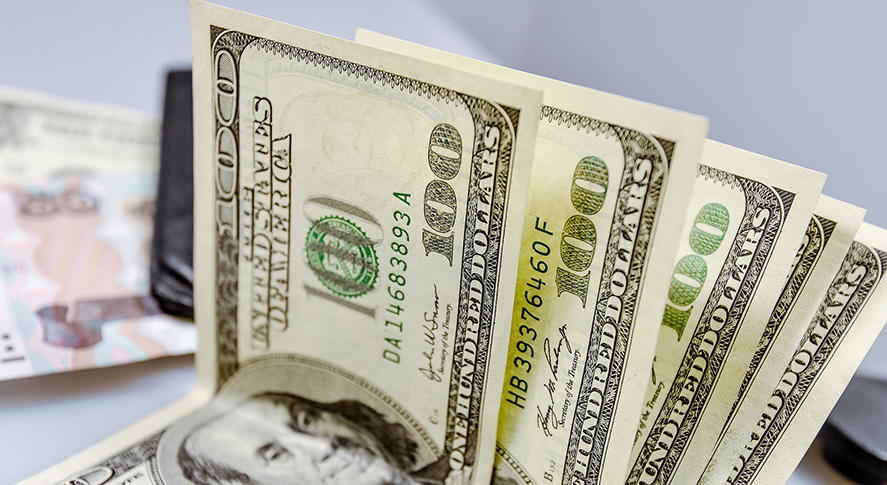How to stop spending money and start saving

If you are constantly thinking about how to stop spending money and start saving, you need to understand that it is not only important to earn a lot, but also to be able to save.
How to learn not to waste money
First of all, you need to set a savings goal for yourself. Regardless of what exactly you will save up for, the goal should be clearly marked. After that, you should think through a plan with which you will reach the finish line. Such a plan should determine exactly how much and for what period of time you should set aside, taking into account your monthly income and expenses. Planning will help you avoid unnecessary expenses.
Psychological attitude is a very strong thing that helps you act correctly:
- draw or write down your goal on paper;
- every night before going to bed, visualize that the desired item is already yours.Draw in your mind what you are doing with it, how you feel, etc.
Calculate your budget

There is one very important rule not to spend money, your expenses should not exceed your income. Therefore, you need to clearly track how much you earn and how much you spend each month. To do this, you can keep a special table or use a mobile application.Now there are quite a lot of such developments. Before each purchase, think about how important this item is to you and whether you really need it.
Keeping a budget will help you analyze your financial situation and find the holes where money is flowing.
How to avoid spending money on unnecessary things? Make it a rule to pay all your bills first, buy the necessary things and groceries, and then spend on entertainment.
Every time you have a desire to buy a large item, take a break for a couple of days. During this time, you will be able to soberly assess the need for this particular purchase and abandon impulsive decisions.
Don’t know how to stop wasting money? – <strong>try eating at home</strong>. We talked in detail about <a>how to save on food earlier</a>. There is always healthier and cheaper food in your refrigerator or at the nearest grocery store than in cafes and restaurants. Go to the store on a full stomach, so you will definitely not buy too much extra. And go to the supermarket only when there is definitely no food in the house, this will help reduce food costs. Take a list of what you need to buy with you, and don’t deviate from it.
You can take snacks and lunches to work with you, and not go to a cafe, canteen, or order food delivery. This will help you not only save your budget, but also eat healthy.
Try to unsubscribe from all mailings and catalogs that come to your email address. Retailers use these newsletters and promotions to try to convince you to buy. Just delete such correspondence.
How to learn not to spend money? Try to get rid of your credit cards. If you want to learn how to save money, a credit card is your worst enemy. Having a credit card in your wallet encourages you to make unnecessary purchases. You don’t just spend the extra money, you’ll also have to pay it back with interest. What kind of savings are there?
How to avoid spending extra money? Instead of calling a specialist, try to do something with your own hands – repair equipment, hang a chandelier, or paste wallpaper.
How to avoid spending money and learn how to save?

Many people find it difficult to start saving money and start saving it. To do this, you can allocate powerful incentives for yourself:
- you can learn to live not in one moment, but to think about the future;
- you will be able to plan ahead for major acquisitions without waiting for a bonus or inheritance.;
- mastering the science of financial discipline that increases responsibility in other areas of life;
- understand how to live economically and how not to spend money on nonsense;
- find inner peace and peace of mind.
To achieve this goal and see tangible results, the desire to save money must be turned into a habit. Make it a rule to save up to 10% of any income every month. If you can save more, save more, but not less. It is important to save this money before you start planning your expenses. You can come up with a punishment for yourself if you do not save money. For example, deprive yourself of sweets or going to the movies.
Even if you don’t earn very much, there are ways to stop spending money on nonsense and start saving. Ten dollars won’t save you in any case, and if you save it every month, you can save 120 in a year.
Try converting one of your expense items to savings. This is a fairly simple option. Find one or two optional items of expenditure in your budget and discard them, and save the remaining funds. For example, you buy coffee with you every morning, make it a rule to drink a cup of coffee at home, pass by a cafe and in a month you can save several hundred dollars.
You can also opt out of buying cigarettes and alcoholic beverages. You will not only save a decent amount of money, but also lead a healthy lifestyle.
Don’t make mistakes to learn how to save money

One of the main obstacles to saving and saving for many people is the idea that saving is a shame. As a rule, this approach ends up with unnecessary expenses.
There are also other things that prevent you from saving up:
- you don’t have a clear goal.You save money just like that, thereby reducing your motivation.This is relaxing, and after a certain amount of time you will stop accumulating;
- you save money out of the amount that you have left after all payments, as a result, it often happens that there is nothing left to save;
- keep your savings at home or in an easily accessible account, where you can easily withdraw them if you really want to.And the money stored at home can also be devalued;
- save up at the expense of meeting your needs.Many people, trying to save up as much money as possible as quickly as possible, go to extremes.They don’t buy food, medicine, or pay for housing and utilities services.This usually leads to problems in the family, illnesses, etc.
How to learn not to spend money and whether it is worth saving it in our time, when no one has confidence in the future? The answer is obvious. Moreover, it is necessary to teach this process from early childhood, when the child begins to have his first pocket money. For a teenager who has saved up for the desired thing, it will be even more valuable, and as an adult, he will be able to stay afloat in the most difficult financial situation due to this skill. If you weren’t taught the habit of saving as a child, it’s never too late to learn it.














Leave a Reply